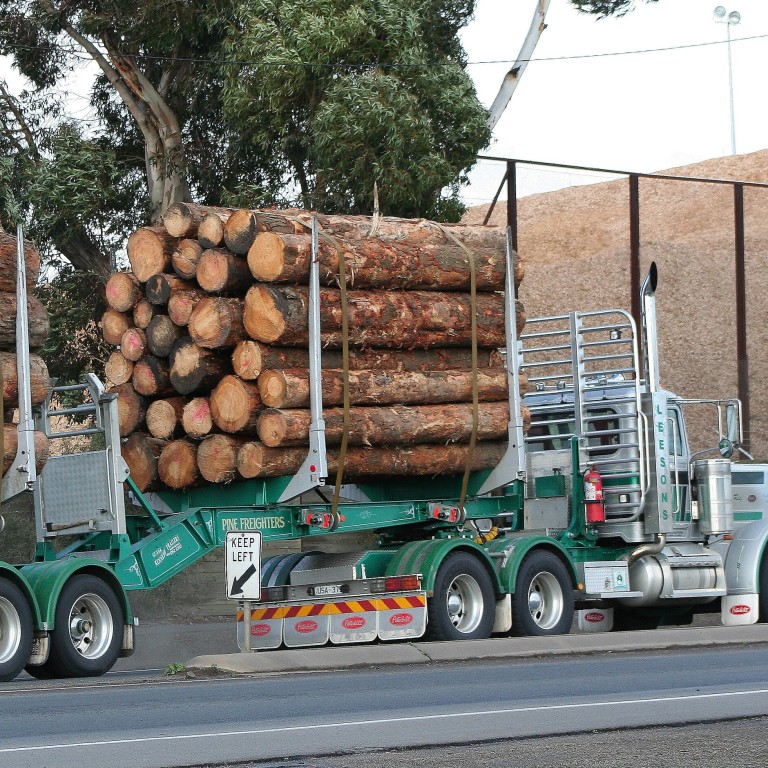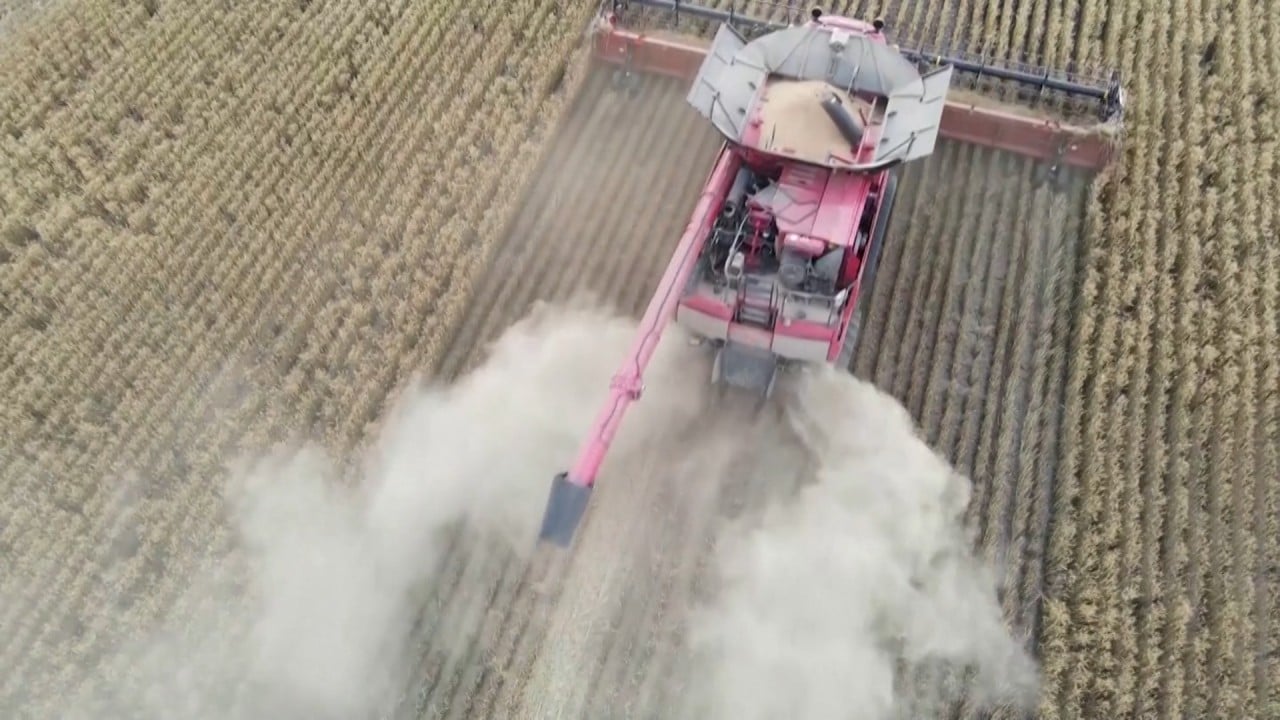
China-Australia relations: ‘crude’ meddling and disrespect ‘poisoned’ ties, says Beijing, after latest ban
- Chinese foreign ministry spokesman Wang Wenbin says Australia’s excessive criticisms of Xinjiang, Taiwan and Hong Kong has ‘poisoned’ the relationship
- China banned imports of logs from a second Australian state from Wednesday, the latest in a series of trade blocks
China has labelled Australia’s perceived interference in its domestic affairs as “crude”, saying its meddling and disrespect for Chinese sovereignty has damaged the bilateral relations between the two countries, a day after it banned imports of logs from a second Australian state.
These actions have severely damaged mutual trust between the two countries, poisoned bilateral relations, and undermined the principles of Sino-Australian cooperation
“The reasons for the difficult relationship between China and Australia are very clear. For some time now, Australia has been blatantly violating usual diplomatic practises in international relations and has made inflammatory comments on China’s domestic matters relating to Hong Kong, Xinjiang, and Taiwan repeatedly,” Wang said.
“Some people in Australia have slandered, accused China, and politicised the relationship without evidence.
“These actions have severely damaged mutual trust between the two countries, poisoned bilateral relations, and undermined the principles of Sino-Australian cooperation.”
Wang, in the daily foreign ministry press conference, also urged Australia to “face up” to these issues – which have had a hand in breaking down the communication between the two countries – and asked Australia to treat China fairly and respectfully as a means to put a halt to the conflict.
Earlier on Thursday, the Australian government and industry body for log timber, the Australian Forest Products Association (AFPA), said the state of Victoria had been banned from shipping logs to China from Wednesday due to the discovery of a pest, the bark beetle Ips grandicollis, in some imports.
“These pests pose a serious threat to China’s agricultural production and ecological security,” Wang said, adding that the actions are precautions in line with international biosecurity practises, many of which are also found in Australia.

01:15
China-Australia trade: Beijing set to ban nearly US$400 million worth of Australian wheat imports
The Victorian ban comes just over a week after China unleashed a fresh wave of trade actions against Australia which included the ban on Queensland logs and the suspension of barley imports from Australian grain exporter Emerald Grain due to contamination.
China had already discouraged the imports of Australian cotton and coal, while it is continuing to investigate claims of dumping cheap Australian wine in China.
Over the past week, China has started to speak about its conflict with Australia, adding that Australia’s departure from a genuine free and open trade relationship – stemming from its free trade agreement signed in December 2015 – was another reason the relationship had soured.
Australia’s Department for Foreign Affairs and Trade did not respond directly to a request for comment in response to Wang’s remarks last week, instead opting to point to recent comments made by trade minister Simon Birmingham.
Birmingham himself also did not respond directly to Wang’s earlier comments, but maintained he had not received confirmation from Chinese authorities that any Australian imports had been formally banned from China.
He also said most shipments to China were still being processed despite the trade actions, but conceded there were delays in the customs clearance of live lobsters.
In the past week, a handful of shipments of Australian cherries also met with delays, mainly at Shanghai airport, but the problem was not widespread and could likely be due to escalated coronavirus inspections for packaging contamination, import sources said.
China has taken coronavirus testing of food packaging seriously since the virus was found on imported shrimp in July. It has not only stepped up customs inspections as part of its biosecurity risk management, but has also banned several seafood export countries.
It has also banned imports from 54 meat processing plants globally due to the risk of coronavirus contamination concerns, including two in Australia.
China made it clear in August during a speech by Chinese deputy head of mission Wang Xining in Canberra it was upset by Australia’s push for the inquiry.
Australia Prime Minister Scott Morrison wrote to Group of 20 leaders to galvanise support for the probe without consulting China, just as evidence emerged Chinese authorities had initially covered up the existence of the virus.
After Donald Trump was elected the US president, some Australian media regularly pursued stories about alleged increases in Chinese spying, suggesting Chinese spies and spying activities had increased, again drawing the ire of Beijing.
This also came at a time when Chinese economic expansion into Australia and many other Western economies – both in terms of investment in assets as well as property development – was booming.
Australia has since implemented its own foreign interference national security law and last week charged an Australian man with Vietnamese-Chinese heritage under the law for the first time.
Additional reporting by Catherine Wong

